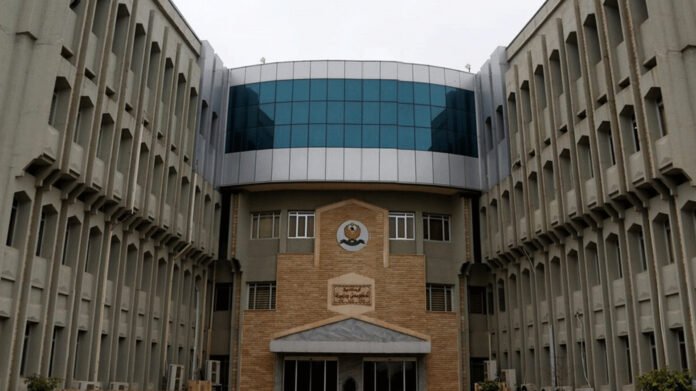Kurdistan Region’s cabinet met to review a critical agreement with Baghdad, focusing on public salaries and oil revenue management. The meeting follows growing international pressure, including from the United States, urging Baghdad to fulfill its financial commitments.
Led by Prime Minister Masrour Barzani, the Kurdistan Regional Government (KRG) cabinet focused on two main points. First, ministers examined progress on a recent deal between Erbil and Baghdad. This deal outlines how both oil and non-oil revenues should be handled. It also defines how and when salaries must be paid to public workers in the region.
The cabinet discussed how to enforce the terms of this agreement, which both sides previously approved. Officials stressed that any delays in implementing the deal could affect the stability of the region. They underlined the need for reliable salary payments and consistent oil management.
Second, ministers reviewed the minutes from a special meeting held earlier this month. That meeting explored technical steps to support the deal’s success. It included plans to enhance the Region’s Standardization and Quality Control Board. This step is seen as key to increasing oversight and improving financial transparency.
The timing of the cabinet session reflects growing pressure on Baghdad. Just one day before the meeting, U.S. Secretary of State Marco Rubio urged Iraqi Prime Minister Mohammed Shia al-Sudani to pay Kurdistan’s salaries on time. Rubio also called for a restart of oil exports through the Iraq-Türkiye Pipeline. These exports remain suspended, affecting both the regional and national economy.
In the same call, Rubio raised strong concerns about recent drone attacks on energy infrastructure in the Kurdistan Region. He called on Baghdad to identify and prosecute those responsible. Rubio also warned that a proposed bill concerning the Popular Mobilization Commission (PMC) could empower armed factions loyal to foreign interests. He argued that the bill might threaten Iraq’s sovereignty.
The cabinet’s discussion reflects wider tensions between Kurdistan and Baghdad. Disputes over oil control and budget rights have strained relations for years. However, the latest agreement offers a potential roadmap to end the stalemate. Its success depends on full cooperation and follow-through from both sides.
As the cabinet continues its review, officials stress that financial stability must come first. The people of the Kurdistan Region deserve consistent salaries, reliable governance, and protection of their energy resources.
The outcome of these talks could determine the future of the agreement. The KRG’s clear stance highlights the urgent need for action. By focusing on public interest, the cabinet aims to secure progress and protect Kurdish rights.

